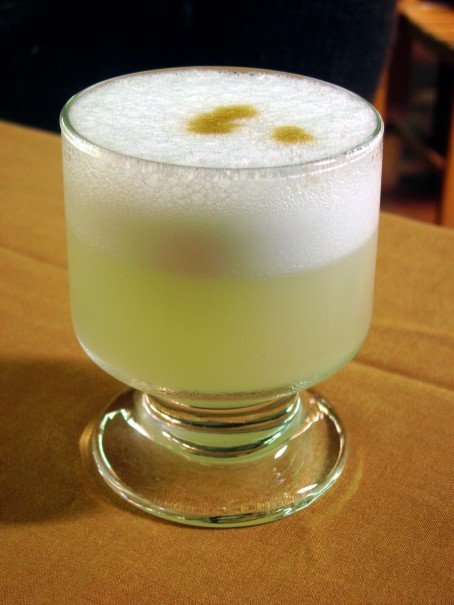
Have a Drink and Be Grateful You Don’t Write About Oil Concessions

Have a Drink and Be Grateful You Don’t Write About Oil Concessions
Pisco Sour in Belgravia
My first pisco sour was not in Peru, or even in Chile, a country that also claims the fiery drink as its own. It was in London on a rainy November night, a long time before pisco, or, for that matter, ceviche, became popular in London.
It was at Canning House, a grand, chalk-white Georgian terrace sandwiched between the German and Portuguese embassies on Belgrave Square (also home to the Syrian embassy) that functions as a kind of cultural diplomatic forum for British-Latin American relations, and holds debates, parties, and even language classes. (I took three months of Brazilian Portuguese lessons there, and retained precisely one useful phrase: the exclamation Nossa!).
I was a new-ish reporter for a business magazine covering legal and political developments in Latin America: I mainly wrote about legal cases involving multinationals, mergers, IPOs, oil and gas issues, and the law firms who led these deals. But I also got to cover some of Evo Morales’ first antics as president of Bolivia, and Hugo Chavez’s nationalization spree, plus my favorite piece, on the ruling that Peru had to pay the $5m bounty cash to the person who tipped them off on Fujimori’s former intelligence chief’s whereabouts.
My editors thought it would be nice for me to see Canning House—all high ceiling, creaky staircases, and maroon carpets—so they sent me along to cover this event: a coming-out party for Peru’s new oil concessions in the Amazon. There were reps from the state oil company and from the Peruvian government. There was a presentation, with overhead projectors and maps. It was a fairly bland affair, and at age 24, I resented wearing business attire (or anything other than flip flops, which is no less true today in my 30s).
Two things improved the evening. The first was the trays of pisco sours making their way around the room. The drink was tart and strong, and a welcome change from plastic-glassed Chardonnay. The second was the tall, skinny interloper with blonde hair who infiltrated the sea of suits and back-slapping diplomats after the presentation. He was from Survival International–an NGO lobbying for the rights of tribal groups–and started handing out flyers and lecturing about the indigenous groups that were being displaced in the lands that Peru was so eagerly auctioning off. I watched him break into clusters of people, spreading small ripples of awkwardness. He was not disruptive enough to throw out, but just enough to make people uncomfortable. It was a very British protest.
I spent most of December 2015 in Peru because, to quote Calvin Trillin, I never let a decade go by without renewing my assault on Spanish. (Although I have given up on Portuguese, for now). One of the perks of the trip was enjoying the pisco sour at the source and every time I drank one, I was thankful that I no longer write about oil concessions in Peru, or the lawyers that make it possible.